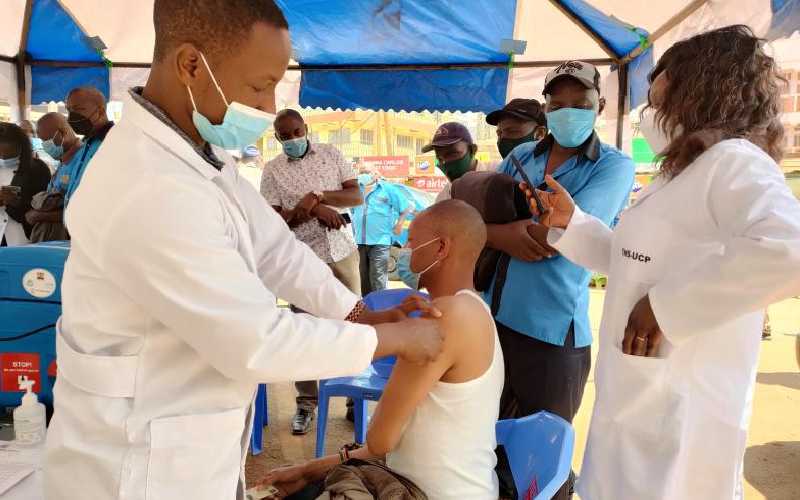×
The Standard e-Paper
Stay Informed, Even Offline

Matatu drivers and stage attendants get vaccinated at Embu Nairobi Stage in Embu town on September 23, 2021. [Muriithi Mugo, Standard]
It will be mandatory for Kenyans to have a coronavirus vaccination certificate to access in-person services in government offices starting December 21.